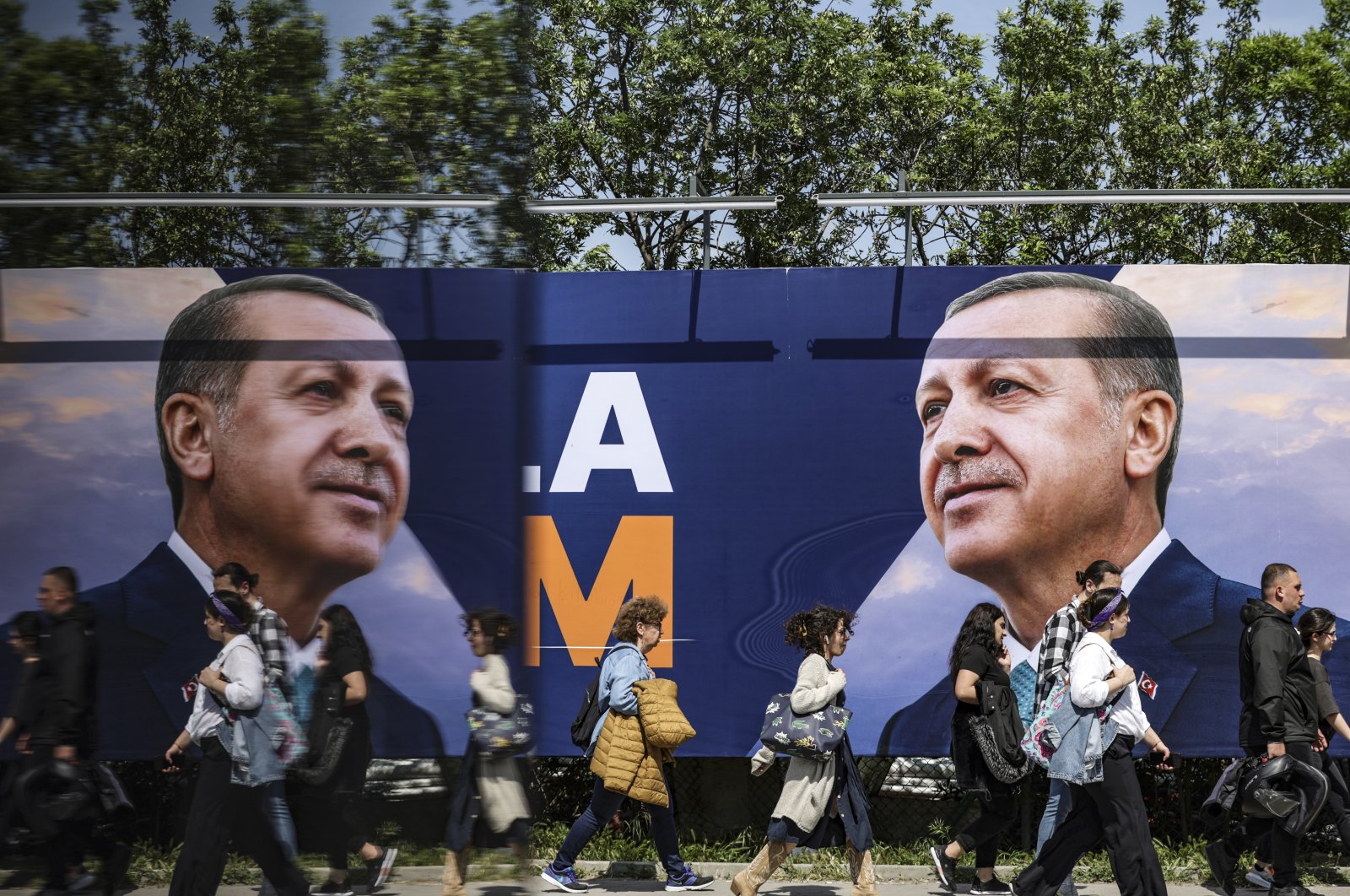Is economic policy overhaul in sight after Türkiye runoff?
Türkiye is at a critical juncture, with a great deal of speculation surrounding the future of its economy following the presidential runoff this Sunday. The overarching question on everyone’s minds looms large: Will Türkiye remain steadfast in its commitment to the current economic policies centered around lower interest rates to fuel growth?
The answer seems to be an emphatic “yes,” according to incumbent President Recep Tayyip Erdoğan, who has ruled Türkiye for 20 years and is well positioned to extend it into a third decade after falling just short of victory in the first round of balloting on May 14.
His rival, Kemal Kılıçdaroğlu, the leader of Türkiye’s main opposition Republican People’s Party (CHP) and the six-party Nation Alliance, pledges the opposite, having campaigned on a promise to undo the current monetary policies.
At the heart of the debate lies Türkiye’s battle against high inflation, which has undermined the purchasing power of its citizens, and a steep depreciation in the Turkish lira. In response, the government adopted a strategy based on reducing borrowing costs to combat rising prices and stimulate economic growth.
Türkiye is also trying to emerge from the effects of devastating earthquakes that ripped through the country’s southeastern region in early February.
The rationale behind the government’s economic program is to stimulate domestic demand, boost investment and consequently drive economic growth. In addition, it insists that the program, unveiled in 2021, can help flip the country’s chronic current account deficits to a surplus.
Supporters of this approach argue that lower interest rates can stimulate economic activity by encouraging borrowing for investment and consumption, leading to higher growth and job creation.
They contend that conventional monetary policy tools, such as raising interest rates, have failed to address Türkiye’s unique economic challenges.
In line with this approach, the Turkish central bank has aggressively reduced interest rates to ease borrowing costs for businesses and individuals and encourage spending. The policy rate, known as the one-week repo rate, was cut from 19% in mid-2021 to 9% by early 2023.
The monetary authority last cut the benchmark policy rate by another 50 basis points to provide stimulus after the catastrophic Feb. 6 tremors killed more than 50,000 people and caused extensive destruction across 11 provinces. It deemed the “measured” cut as “adequate” to support the recovery.
Erdoğan has promised to spend whatever is necessary to reconstruct the quake-stricken areas. At each ground-breaking ceremony, he asserts that only his government can rebuild lives after the disaster.
In addition to these efforts, the president has increased public-sector wages, boosted pensions, allowed early retirement for millions, introduced subsidies for electricity and gas and wiped out some household debt.
The central bank on Thursday kept the policy rate at 8.5% for a third straight month. Its statement that followed the decision said that “it has become even more important to keep financial conditions supportive of preserving the growth momentum in industrial production and the positive trend in employment.”
It also said the underlying trend of inflation continued to improve.
The government says the downward trend in annual inflation, which has moderated over the last six months, will continue after it hit a 24-year peak last October. The consumer price index (CPI) eased to an annual 43.68% in April, almost halving from 85.51% in October.
Erdoğan has repeatedly asserted that interest rates would decrease as long as he remains in power and guarantees that inflation will be controlled.
“Please do follow me in the aftermath of the elections, and you will see that inflation will be going down along with interest rates,” Erdoğan told an interview with CNN International a week ago.
Asked whether that meant there would be no change in economic policy, he replied: “Yes. Absolutely.”
People’s Alliance, led by Erdoğan’s ruling Justice and Development Party (AK Party), also retained its hold on Parliament in legislative elections two weeks ago, further increasing his chances for reelection.
Critics express concerns over the potential consequences of the current policy. They highlight the risk of accelerating inflationary pressures as the economy heats up, potentially eroding the gains made from the lower interest rates.
They suggest the current policy of low-interest rates despite surging prices that propelled inflation and triggered a depreciation in the lira against the U.S. dollar.
The currency depreciated some 44% against the dollar in 2021 and declined 30% in 2022. It closed at 19.8695 on Thursday and has dropped 6.4% this year.
The government has introduced multiple regulations and tools to discourage hard currency holdings.
Erdoğan has insisted that high borrowing costs cause high inflation, rejecting economic thinking that suggests raising interest rates helps curb price increases.
“I have a thesis that interest rates and inflation are directly correlated. So the lower the interest rates, the lower the inflation,” he said last week.
“In this country, the inflation rate will come down along with the interest rates so that we will come to a point where people will be relieved. I say this speaking as an economist. This is not an illusion.”
Kılıçdaroğlu has pledged to reverse the current program and return to a more orthodox economic policy with aggressive rate hikes.
In case of a victory for Erdoğan, according to Enver Erkan, chief economist at Dinamik Yatırım, the focus will be on the conditions that could exert pressure on the exchange rate, international reserves and inflation and potentially force a change in the central bank policies.
Erkan questioned the long-term sustainability of maintaining low-interest rates to control inflation and the exchange rate.
“Erdoğan has expressed his intention to maintain low-interest rates and believes that inflation will eventually slow down as a result,” he noted.
“This approach, aimed at supporting economic growth, may raise concerns about the sustainability of such a policy in the long run, as it may not be possible to control inflation and exchange rates with low-interest rates alone.”
On the other hand, Erkan said Kılıçdaroğlu’s approach might tighten economic conditions and contain inflation. But, at the same time, it may also lead to limited demand and a loss of economic momentum in the short run.
The sustainability of the current policy trajectory depends on various factors, including the global environment, commodity prices and domestic economic conditions.
The path ahead for Türkiye after the vote will require a delicate balance between addressing inflationary pressures and maintaining economic growth and stability.
The outcome of the election and subsequent economic policies will significantly impact the exchange rate, reserves and inflation, Erkan said.
“However, the exact distribution and assessment of these policies are difficult to predict given the country’s important crossroads,” he noted.
“Both policy options have their own implications and challenges.”


